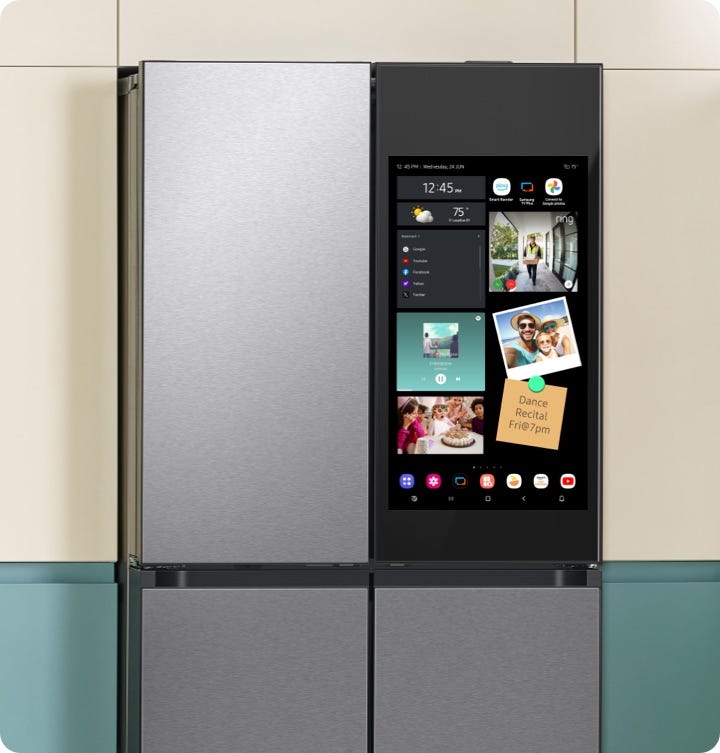Finding Solutions to Food Waste: Can a Smart Fridge Help?
Written on
Understanding Food Waste
According to a report from the UN, approximately 19% of all food produced was discarded in 2022, amounting to over a billion metric tons. A significant portion of this waste occurs in our homes.
I can relate to this all too well. A few months ago, while reorganizing my fridge, I stumbled upon a purple radish I impulsively bought five weeks earlier—it had transformed from vibrant to brown and moldy, leading it straight to the trash.
This scenario is all too common, and since most food waste is accidental, it presents a challenging problem to address.
The Complexity of Individual Food Waste
Numerous governmental and international organizations have attempted to tackle food waste, but the results have been varied. For instance, a three-year campaign in New Zealand aimed at reducing food waste only managed to decrease it from 3.17 kg to 3.15 kg per week—hardly a significant change.
Changing people's behaviors surrounding food is not a simple task. Many individuals believe they already handle food responsibly. Even if someone recognizes the need to change, it’s not just a matter of avoiding certain items; it involves monitoring every food product in their fridge and pantry—an overwhelming task for anyone juggling daily stressors.
So, could delegating food decisions to an AI-powered fridge be the solution?
The Case for Smart Refrigerators
In a recent episode of Akimbo titled "What’s in the Fridge," Seth Godin argues that food waste is a systemic issue that requires comprehensive solutions. People often forget what they have on hand when planning meals, and the convenience of dining out contributes significantly to global obesity rates.
Many shoppers stick to familiar choices, even at farmer’s markets, opting for salmon or shrimp instead of local seafood, which fosters unsustainable consumption patterns beyond just food waste.
Seth proposes a connected fridge that keeps track of its contents, reminds users of items that need to be consumed, suggests recipes, and can automatically reorder supplies based on usage patterns and seasonal availability.
In 2019, when this idea was first shared, only prototypes existed. Now, smart fridges capable of scanning contents, recommending meals, and facilitating orders are available for purchase.

The Samsung Family Hub smart fridge is a glimpse into this vision. However, it currently lacks the functionality to make grocery orders autonomously without user input.
While the cheapest model retails for around $1,800, there are more affordable alternatives like the Smart Fridge Cam, which tracks inventory for approximately $125.
Nevertheless, simply having access to information won't resolve the underlying issues within the food supply chain or consumer habits. These fridges still cannot make healthier choices on our behalf.
But is that even a feasible goal? If we allow automatic ordering, who determines which brands can sell to our smart fridge? The prospect of creating a new digital monopoly is concerning, especially with ongoing antitrust cases against major tech companies, highlighting the risks of concentrated power.
When one entity controls access to a digital marketplace, it can suppress competition. For instance, Amazon often replicates successful products and undercuts original sellers with its “Amazon Basics” line.
This situation resonates with concerns raised by economist Yanis Varoufakis, who critiques the current economic system, referring to it as "techno-feudalism."
The Dangers of Delegated Decision-Making
What would happen if we permitted companies like Amazon to dictate our fridge purchases? I foresee significant drawbacks. An endless supply of generic ice cream and cookie dough is hardly a recipe for improved health or reduced waste.
For many, the need to physically shop helps manage their weight. Should governments take it upon themselves to regulate which food items can be sold automatically? This raises ethical questions.
While it’s justifiable to restrict harmful products like cigarettes, permitting government control over our dietary choices feels excessive.
Exploring Alternative Solutions
Sadly, simply enhancing fridge technology won't resolve all our food-related challenges.
Emerging movements focused on slow food and plant-based eating could gain traction if more individuals have the time, energy, and financial means to prioritize intentional shopping and cooking.
Policymakers can encourage better habits by:
- Supporting local sustainable agriculture to make it financially viable for consumers (an initiative already in progress in various countries).
- Implementing clear labels that easily identify local and sustainable products (also underway).
- Creating infrastructure to assist families in making long-lasting food products from surplus fruits and vegetables, similar to Norway’s “fruit receiving stations.”
Entrepreneurs can lower barriers by offering subscription boxes for produce, although this can inadvertently increase food waste if unfamiliar vegetables are included, or by establishing platforms that connect farmers directly with consumers, especially for non-standard produce. Companies like Imperfect Foods are already making strides in this direction.
In the meantime, we must continue to strive for individual solutions. Here are some strategies that have helped me minimize waste:
- Purchasing local produce
- Sticking to shopping lists to avoid impulse buys
- Removing plastic from perishables that spoil quickly
- Opting for smaller serving sizes unless I regularly consume large quantities (even if it's pricier)
- Preparing lunch from leftover pantry and fridge items
- Committing to cooking new and exotic ingredients on the same day they’re purchased
- Freezing herbs and other quickly perishable items after initial use
The first video provides practical tips on organizing your refrigerator to prevent waste and maximize efficiency.
In the second video, the importance of keeping your refrigerator stocked is discussed, highlighting its impact on lifestyle and relationships.